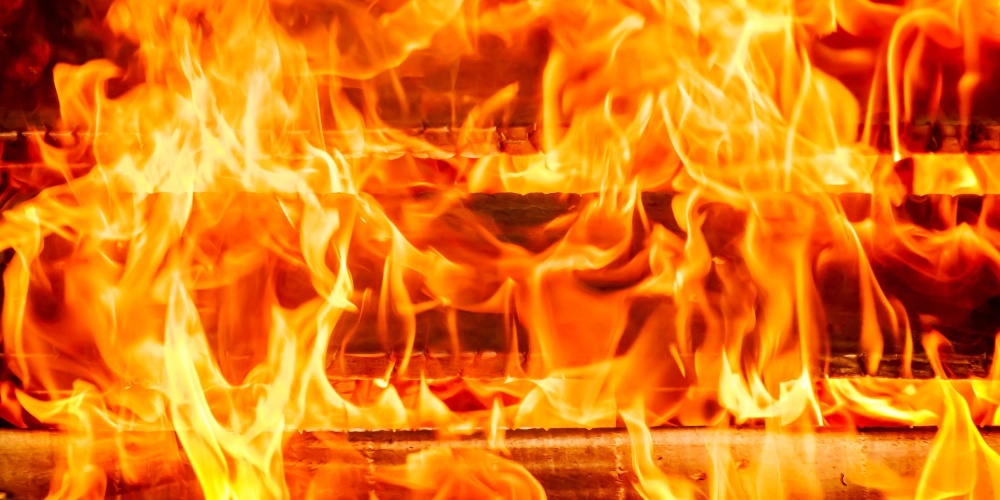
“Rav Yochanan said: Jerusalem was destroyed only because they followed the laws of the Torah” (Bava Metzia 30b).
The Talmud is incredulous at such an assertion – should they follow the laws of violence they query? The Talmud explains that what Rav Yochanan must have meant is that while the laws of the Torah were followed, lifnim meshurat hadin, generally translated as going beyond the letter of the law, was not.
That one can follow all the laws of the Torah and yet be very, very far from a Torah observant Jew is a theme developed by the Ramban. Commenting on the exhortation to “be holy” (Vayikra 19:2), the Ramban notes that one can follow the Torah meticulously and yet be a “naval bereshut haTorah”, a disgusting person with the permission of the Torah. One can eat like a glutton, marry many wives, waste away the day, without actually violating any prohibition of the Torah. Yet the distance from holiness is so far as to render oneself little better than a dead carcass[1].
The command to be holy reflects our obligations to G-d — hence the continuation of the verse “for I the Lord your G-d is holy”. That the Torah’s obligations are not enough vis-a-vis our relationship to man is based on the verse we read every year on the shabbat after Tisha B’Av: “vasseta hayashar vehatov, you shall do the straight [right] and the good” (Devarim 6:18). While this verse refers to the laws of the Torah as a whole, the Ramban explains that keeping the laws of the Torah is not enough to be doing “the straight and the good”.
“Our Rabbis have a beautiful Midrash on this verse. They have said: this refers to compromise and lifnim meshurat hadin…Now this is a great principle, for it is impossible to mention in the Torah all aspects of man’s conduct with his neighbours and friends, and all his various transactions, and the ordinances of all societies and countries. But since He mentioned many of them — such as: Thou shalt not go up and down as a talebearer; Thou shalt not take vengeance, nor bear any grudge; neither shalt thou stand idly by the blood of thy neighbour; Thou shalt not curse the deaf; Thou shalt rise up before the hoary head, and the like — he reverted to state in a general way that, in all matters, one should do what is good and right, including even compromise and, lifnim meshurat hadin”.
Doing that which is good requires one to act lifnim meshurat hadin. It requires compromise, not insisting on every legal right, and a willingness to do more than the law requires, in ways that will bring people together.
Taking a close look at Rav Yochanan’s teaching, one notes that the Gemara derives the concept of lifnim meshurat hadin from a different verse: “And you shall warn them of the laws and the teachings and make known to them the way they are to go and the practices they are to follow” (Shemot 18:20). The Talmud explains that the phrase “that they are to do” refers to “lifnim meshurat hadin as Rav Yochanan taught, Jerusalem was destroyed only because they followed the laws of the Torah.”
This verse was actually uttered by Yitro, as he exhorted Moshe to set up a properly functioning judicial system. So important is this that it serves as the introduction to the Divine revelation at Sinai and the Aseret Hadibot. Without lifnim meshurat hadin, Yitro (as understood by Rav Yochanan) warns that the Torah will be stillborn. Moshe listened, set up a judiciary, and its importance was the very first idea Moshe addresses in sefer Devarim. “Prepare for yourselves wise and understanding men, known among your tribes, and I will make them heads over you” (Devarim 1:12). Moshe begins as he prepares the nation to enter the Land of Israel. The nation will be unable to survive, “Jerusalem will be destroyed,” without lifnim meshurat hadin.
But the Gemara’s understanding that this verse refers to lifnim meshurat hadin is problematic. Yitro was giving instructions for setting up a judiciary as he was speaking to the role of the judges. And the one place lifnim meshurat hadin is not allowed in is in a court of law. Here, pure justice must reign supreme. In a court of law, “You shall hear the words of the small as you do those of the great”. “You shall not say” our Sages teach that “This is a poor man, and his friend [opponent] is rich, and it is a mitzvah to support him [the poor man]. I will favour the poor man, and he will thus be supported respectably.” While that is exactly what lifnim meshurat hadin requires, it is exactly what a court is prohibited from doing. How then could our Sages understand Yitro’s admonition to the judges to refer to lifnim meshurat hadin?
A closer examination of what lifnim meshurat hadin actually means will shed much light. While the term is commonly translated as going beyond the letter of the law, and while such is surely included in lifnim meshurat hadin, that is not what the term means. Lifnim meshurat hadin actually means “before the straightness of the law”. It is a most precise expression. In expressing the idea that the three most important requirements of a court of law are justice, justice, and justice, our Sages teach yikov hadin et hahar — let the law pierce the mountain. A judge cannot worry about the impact of their decision. Let justice fall where it may. Extenuating circumstances, the fact that one is on welfare, was sexually abused, is unemployed or homeless, are most unfortunate but irrelevant in a court of law — yikov hadin et hahar. But before, lifnim, the case comes to court, to the shurat hadin, that is the time to act. That is when strict justice is to be tempered with mercy.
Yitro teaches that lifnim meshurat hadin means we must act before coming to court, to solve matters outside the court of law. To convince people to compromise, to see the other side and to be willing to forgo some of their legal rights. To convince people that peace is no less — in fact, is generally much more — important than justice, and unity is more important than winning.
Lifnim meshurat hadin connects one to the Divine. “How do we know that G-d prays?” the Talmud asks (Brachot 7a), as if such is a given. After quoting a verse from Yishayahu that indicates such, the Talmud simply asks: “And what is His prayer?” And the Gemara matter-of-factly responds: “May it be My will that My mercy will overcome My anger, and may My mercy prevail over My other attributes, and may I interact with My children, Israel, with the attribute of mercy, and may I enter before them beyond the letter of the law.”
Of course, the notion that G-d prays is (at least from those who are part of the Maimonidean School) both ludicrous and heretical. To whom, one might wonder, does G-d pray? Moreover, as Rav Soloveitchik noted, prayer emanates only from a sense of need. One who has no needs need not, and should not, pray. Saying that G-d prays is saying G-d has needs, surely not a conventional understanding of G-d.
Rather, this and pretty much every teaching about G-d is actually meant for those created in G-d’s image. If G-d prays every day that His mercy should overpower His anger, so should we. And if G-d prays every day that He should act lifnim meshurat hadin, so should we.
Lifnim meshurat hadin brings us closer both to man and G-d. If the lack of such caused the destruction of Jerusalem, the abundance of lifnim meshurat hadin will be the key to rebuilding Jerusalem.
[1] Naval is related to the word neveilah, which refers to a dead animal that has not been properly slaughtered (i.e., a dead carcass).



